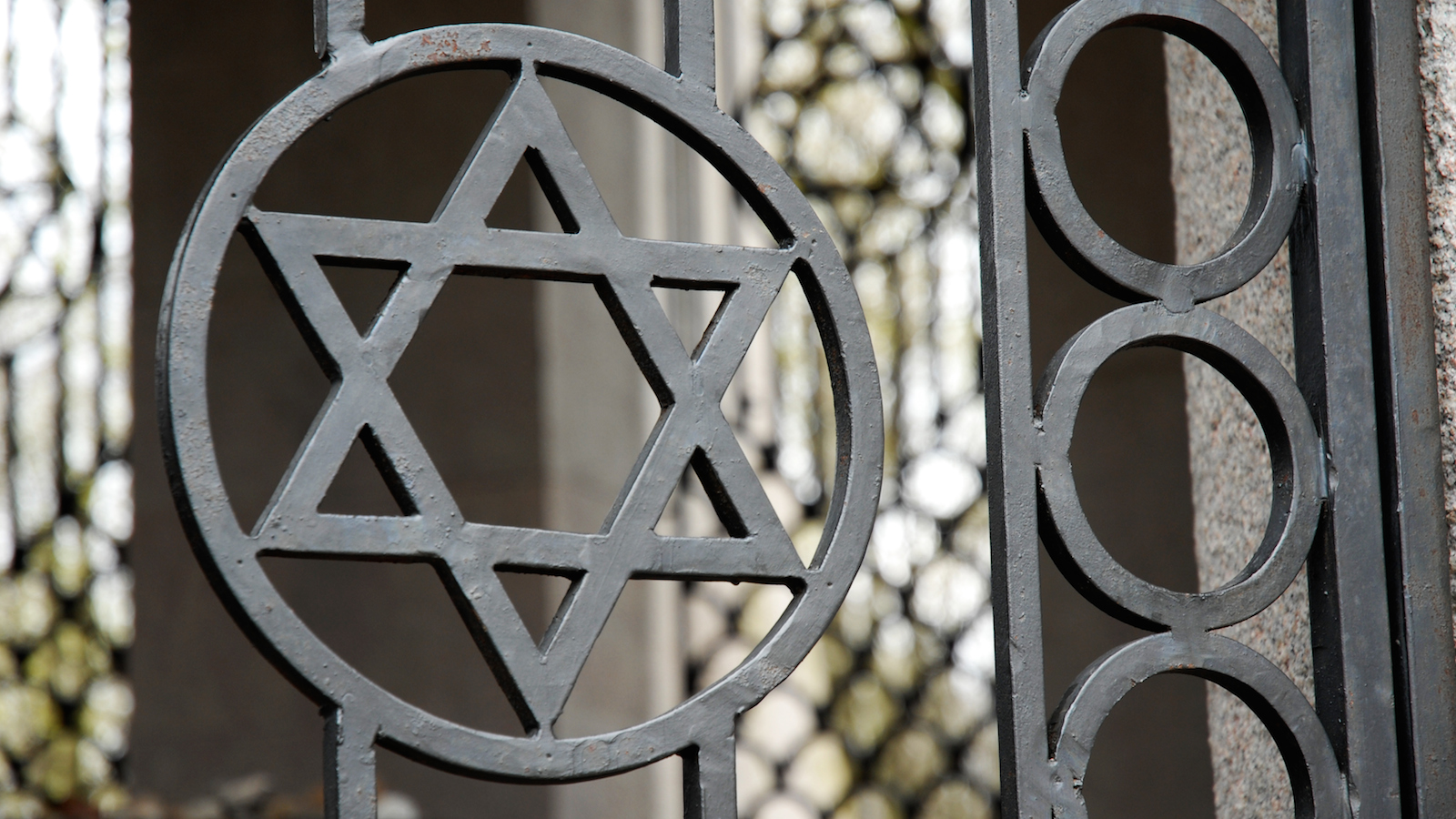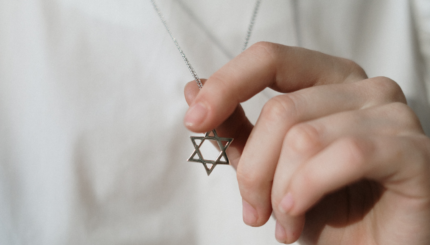The process of conversion penetrates a person’s innermost character and spiritual being, demanding an examination of self and other that may culminate in the adoption of a new identity.
Because of the potential consequences both to the convert’s psyche and to the Jewish people — particularly at times when conversion to Judaism was banned by the ruling powers — rabbis have always urged conversion candidates to carefully consider their own motivations. The Talmud, in fact, states that the first question that the beit din — the rabbinic court that rules upon a conversion – -must ask of a potential convert concerns motivation, “Why should you wish to become a proselyte; do you not know that the people of Israel at the present time are persecuted and oppressed, despised, harassed, and overcome by afflictions?”
- Denominational Differences
- Learning/Study
- Circumcision
- Beit Din (Rabbinic Court)
- Mikveh (Ritual Bath)
- Hebrew Name
- After You Convert
Denominational Differences
Because the different movements have such different visions of what constitutes a “good Jew,” the requirements for conversion can vary significantly among them. A traditional beit din, for example, expects a conversion to be based entirely upon the desire to become a Jew, whereas the liberal movements permit more latitude in a candidate’s initial motivation. Many liberal rabbis will perform a conversion for the sake of an upcoming marriage, reasoning that exposure to Judaism in the context of an intimate relationship is likely to inspire such a convert to eventually accept Judaism for its own sake. Even the process of conversion is a matter of contention among the movements. Whereas traditional rabbis expect the candidate to undergo all rabbinically prescribed rituals, liberal rabbis may use rituals more selectively (although circumcision is a nearly universal requirement). Even within certain movements, there are often differences from one country to another, so if you are expecting to relocate to another country, you may want to make sure your conversion meets the standards of the Jewish community there. It is also wise to ensure that the rabbi or institution with which you are studying is widely respected and that other rabbis and institutions recognize their conversions.
With your help, My Jewish Learning can provide endless opportunities for learning, connection and discovery.
Steps Towards Conversion
Learning/Study
Conversion candidates are urged to learn as much as possible about Jewish religion and culture, to seek out a variety of Jewish experiences, and to talk to a rabbi early in the process. Many people start by enrolling in Introduction to Judaism or Judaism 101 classes, which are frequently offered at synagogues, Jewish community centers and other Jewish institutions. For assistance finding such classes near where you live, you may want to:
- Contact your local Jewish federation or Jewish community center.
- Review the Reform movement’s list of upcoming Introduction to Judaism courses here,
- Check out the Conservative movement’s list of upcoming conversion classes here.
- Contact a local Orthodox congregation or rabbi and ask which class they recommend for prospective converts. Click here for your nearest Orthodox Union -affiliated synagogue To find your nearest Chabad-Lubavitch congregation, click here.
- If you are in Israel, click here for more information about the conversion process there.
- For information about non-Orthodox conversions in Europe visit the World Union for Progressive Judaism site.
- It is also possible now to take classes online — and even go through the entire conversion process online. However, many communities, particularly in Europe, do not recognize online conversions.
If you know of other class directories not listed here, leave information in the comments or email community@myjewishlearning.com.
When both candidate and rabbi agree that the time for conversion has arrived, and the candidate is ready, the formal conversion procedure begins.
Circumcision
If the candidate is male, the first step in a traditional conversion is to undergo brit milah, or circumcision, or if already circumcised, hatafat dam brit [ritual extraction of a drop of blood]. Reform and Reconstructionist rabbis may offer the candidate a choice about hatafat dam brit if he is already circumcised.
Beit Din (Rabbinic Court)
Once the circumcision has healed, a beit din is assembled. This three-person court, generally comprising at least one rabbi and two other observant Jews knowledgeable about the laws of conversion, has sole authority to rule on the convert’s readiness for conversion. The beit din explores a candidate’s sincerity by evaluating his or her knowledge, motivation, and intent to live as a Jew. For traditional Jews, a convert must assent to kabbalat ol ha-mitzvot, acceptance of the yoke of the commandments, that is, a willingness to accept the validity and often to commit to the performance of the Jewish commandments. Liberal rabbis usually ask only for a commitment to perform selected commandments.
Mikveh (Ritual Bath)
Once the beit din is assured of the candidate’s sincerity, the candidate usually immerses in the ritual pool, or mikveh, if available, or else in a lake or the ocean, or, in some cases, a swimming pool [however, only certain non-Orthodox authorities allow a pool].
The mikveh water is symbolic of the in-between state, or liminality, of the convert, who is undergoing what amounts to a spiritual rebirth. The immersion, known as tevillah, symbolically cleanses the convert of past misdeeds and prepares the convert for a different future and destiny. Following immersion, the candidate is officially considered a Jew and can legitimately recite the blessing for immersion that includes the words “who has sanctified us with the commandments.”
Hebrew Name
The newborn Jew takes on a Hebrew name, but a given name only is not sufficient to locate a person within the Jewish tradition. When Jews sign legal documents or are called up to the Torah, their parents’ names are appended to their Hebrew names to locate them in Jewish spiritual space. A convert traditionally adopts Abraham and Sarah as spiritual parents and in legal situations is referred to as “ben Avraham Avinu,” “son of our Father, Abraham,” or “bat Sarah Imenu,” “daughter of our Mother, Sarah.”
READ: 10 Questions About Conversion to Judaism You Were Afraid to Ask
READ: So You Want to Convert to Judaism …
READ: Conversion to Judaism, Denomination by Denomination
After You Convert
Even for the most sincere converts, the post-conversion period can be challenging, as the new Jews-by-choice reestablish relationships with their birth families, develop new ones with newly acquired Jewish families, and work to bridge the emotional gap between feeling like “a convert” and being a Jew who truly feels part of am Yisrael, the Jewish people. With patience, persistence, and a realization that the process is one of evolution, not revolution, the convert acquires that combination of knowledge, habit, and subculture that constitutes an enduring Jewish identity.
Avraham
Pronounced: AHVR-rah-ham, Origin: Hebrew, Abraham in the Torah, considered the first Jew.
mikveh
Pronounced: MICK-vuh, or mick-VAH, Alternate Spelling: mikvah, Origin: Hebrew, Jewish ritual bath.


